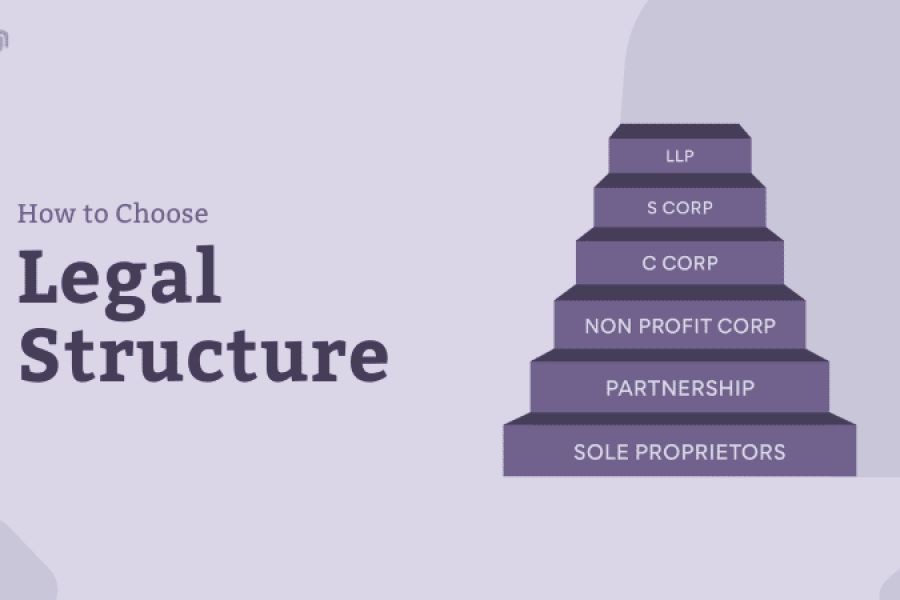Choosing the right business structure is a critical decision that impacts operations, taxation, and liability. In Australia, two popular options are Limited Liability Companies (LLCs) and Sole Traders. This article explores the advantages and disadvantages of each to help you make an informed decision tailored to your business needs.
Understanding the Basics: LLC vs. Sole Trader
A Limited Liability Company (LLC) is a separate legal entity that provides liability protection to its owners, known as shareholders. It can have one or more shareholders, and profits are distributed as dividends. On the other hand, a Sole Trader is an individual operating a business under their own name, with no separation between personal and business assets.
Why Does This Matter in Australia?
In the Australian context, business structures are influenced by the nation's regulatory landscape and economic environment. The Australian Bureau of Statistics (ABS) reports that small businesses make up 97% of all businesses in Australia, and choosing the right structure can significantly impact their success and sustainability.
Pros and Cons of an LLC
Pros:
- Liability Protection: Shareholders are not personally liable for the company's debts, protecting personal assets.
- Professional Image: An LLC is often perceived as more credible and trustworthy, which can attract investors and partners.
- Tax Flexibility: Profits can be distributed to shareholders, potentially reducing the overall tax burden.
Cons:
- Complex Setup: Establishing an LLC involves more paperwork and higher costs compared to a Sole Trader.
- Regulatory Compliance: LLCs must comply with strict reporting and governance standards, as mandated by the Australian Securities and Investments Commission (ASIC).
- Limited Control: Decisions may require agreement from shareholders, which can slow down operations.
Pros and Cons of a Sole Trader
Pros:
- Simple Setup: It's easier and cheaper to establish and maintain compared to an LLC.
- Full Control: The owner has complete control over business decisions without needing to consult others.
- Tax Simplicity: Profits are taxed as personal income, simplifying the tax process.
Cons:
- Unlimited Liability: The owner is personally liable for all business debts and obligations.
- Limited Growth Potential: Raising capital can be challenging as investors prefer more structured entities like LLCs.
- Perceived Unprofessionalism: Some clients and partners may view Sole Traders as less credible.
Real-World Case Studies
Case Study: Tech Startup – Choosing an LLC
Problem: A tech startup in Sydney faced challenges in attracting investors due to its initial Sole Trader setup.
Action: Transitioned to an LLC to enhance credibility and attract venture capital funding.
Result: Successfully raised $2 million in funding and expanded operations, a 150% increase in revenue within a year.
Takeaway: For startups seeking rapid growth and investment, an LLC can provide the necessary structure and credibility.
Case Study: Local Café – Sticking with Sole Trader
Problem: A Melbourne café owner considered restructuring to manage increasing operational costs.
Action: Decided to remain a Sole Trader due to the simplicity and full control over decisions.
Result: Focused on cost-cutting measures and local marketing, resulting in a 20% increase in profit margins over two years.
Takeaway: For small businesses prioritizing simplicity and control, a Sole Trader structure can be advantageous.
Common Myths & Mistakes
Myth vs. Reality
- Myth: "LLCs are only for large businesses."
- Reality: SMEs can greatly benefit from LLCs due to liability protection and tax advantages.
- Myth: "Sole Traders can't hire employees."
- Reality: Sole Traders can employ staff, but they remain personally responsible for employment obligations.
Mistakes to Avoid
- Not Consulting a Professional: Failing to seek expert advice can lead to costly legal and financial mistakes.
- Ignoring Tax Implications: Each structure has different tax obligations, which must be understood before making a decision.
- Overlooking Liability Risks: Sole Traders must be aware of personal liability risks associated with their business.
Future Trends & Predictions
Australia's business landscape is evolving, with a growing emphasis on sustainability and digital transformation. According to the Reserve Bank of Australia (RBA), businesses adopting digital technologies are seeing higher growth rates. This trend suggests that LLCs, with their structured approach, are better positioned to leverage these opportunities.
Conclusion: Making the Right Choice
Choosing between an LLC and a Sole Trader structure depends on your business goals, industry, and personal preferences. While LLCs offer liability protection and growth potential, Sole Traders provide simplicity and full control. It's crucial to weigh these factors and consult with professionals to ensure the best decision for your business.
Call to Action
Are you considering starting a business or restructuring your existing one? Share your thoughts and experiences in the comments below. For tailored advice, consult with a business advisor to explore the best options for your specific needs.
People Also Ask (FAQ)
- How does choosing an LLC or Sole Trader impact taxes in Australia? LLC profits are taxed as corporate income, while Sole Trader profits are taxed as personal income.
- What are the biggest misconceptions about Sole Traders? Many believe Sole Traders can't hire employees, but they can, though the owner remains liable for employment responsibilities.
- What are the benefits of an LLC for small businesses? LLCs offer liability protection and a professional image, which can attract investors and partners.
- Who benefits the most from a Sole Trader structure? Sole Traders benefit small businesses that prioritize simplicity and full control without the need for external investment.
Related Search Queries
- LLC vs. Sole Trader Australia
- Best business structure in Australia
- How to set up an LLC in Australia
- Sole Trader tax benefits Australia
- LLC advantages in Australia







































Benjamin Roberge
1 month ago